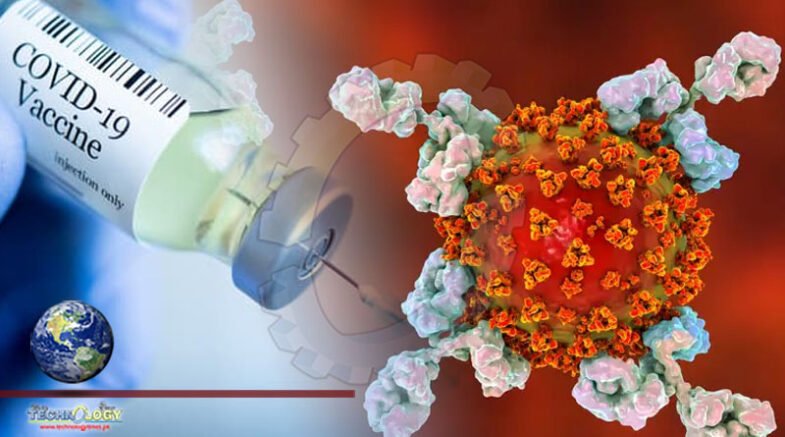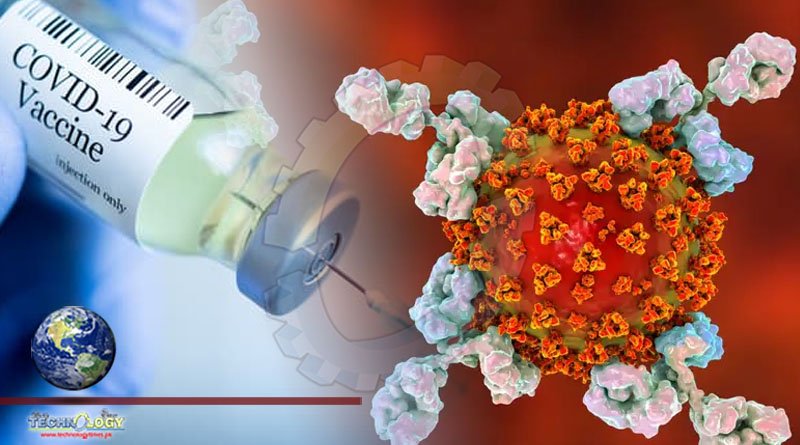Petra Mlchova at the University of Cambridge and her colleagues compared the delta variant with alpha, which was the dominant form in the UK before being overtaken by delta in May.

Lab tests suggest the delta variant escapes immune responses more easily than alpha.
The delta variant of the coronavirus is less sensitive than other common variants to antibodies in the blood of people who have previously been infected or vaccinated, researchers have found. The study, published in Nature, also found that the delta variant is more efficient at replicating and better at breaking into cells from the respiratory tract. These traits may account for why this variant has spread across the world rapidly since it was first identified in India in late 2020, becoming the dominant form of the virus worldwide.
In lab experiments, Petra Mlchova at the University of Cambridge and her colleagues compared the delta variant with alpha, which was the dominant form in the UK before being overtaken by delta in May. Delta was 5.7 times less sensitive to serum from the blood of people who’d previously had covid-19 and eight times less sensitive to serum from people who had been vaccinated.
University of Cambridge Reports Antibodies are proteins produced as part of the body’s immune response to infection. They work by recognising and binding to parts of invading viruses and microbes, such as the spike protein on the surface of the coronavirus. Previous research has found that the delta variant doubles the risk of hospitalisation for unvaccinated people compared with the alpha variant, and that vaccines have a somewhat lower effectiveness against the delta variant – although the protection conferred by receiving two shots of the vaccine is still regarded as good.
The latest study also looked at how the virus behaves in “mini-organs” grown up in the lab from cells taken from people’s airways. Because the delta virus particles have more spikes on their surface, they were better able to break into cells and replicate inside them.
Infection of vaccinated healthcare workers with the delta variant is a significant problem, said study co-author Anurag Agrawal from the CSIR Institute of Genomics and Integrative Biology in Delhi, India. “We urgently need to consider ways of boosting vaccine responses against variants among healthcare workers. [The study] also suggests infection control measures will need to continue in the post-vaccine era,” he said in a press release.
The UK government has drawn up plans for a “firebreak” lockdown in October in case hospitalisations remain high, according to the i newspaper. A member of the Scientific Advisory Group for Emergencies (SAGE) told the paper that the government could be forced to reintroduce restrictions if the National Health Service is at risk of being overwhelmed. “This is essentially the precautionary break that Sage suggested last year,” the unnamed SAGE member said. “It would be sensible to have contingency plans, and if a lockdown is required, to time it so that it has minimal economic and societal impact.” School half-term holidays, which fall at the end of October, could be extended from one to two weeks to help reduce transmission, the newspaper reported.
The NHS will be given an extra £5.4 billion over the next six months to continue the response to coronavirus and tackle the treatment backlog caused by the pandemic. The Department of Health and Social Care said £1 billion of this funding will be specifically used to clear the waiting lists faced by patients due to covid-19, while £2.8 billion will be allocated for costs such as better infection control to continue to protect against the virus. A further £478 million will go towards discharging patients from hospitals to free up beds.
Source News Scientists
